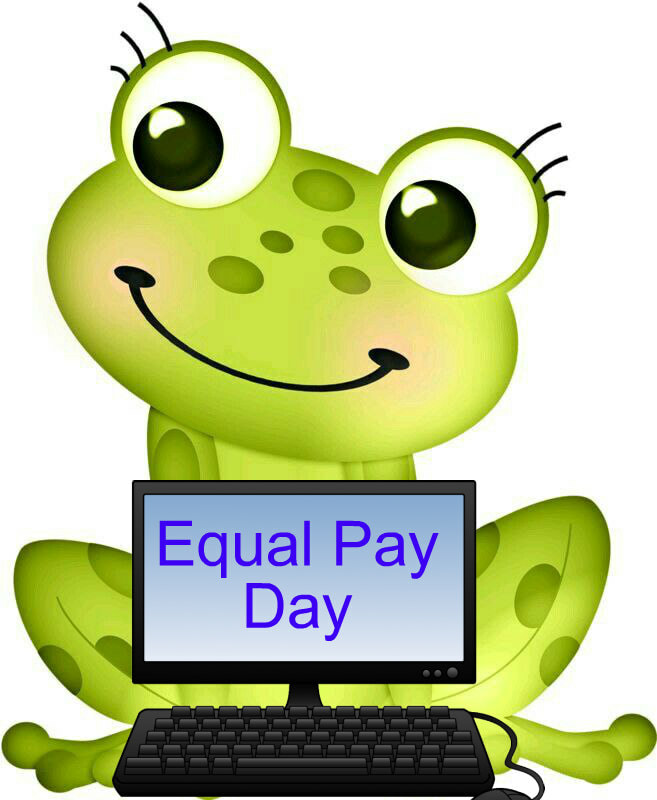Why is the second of April designated as Equal Pay Day? This is the date that symbolizes how far into the new year women must work to earn what men earned last year; women must work 15 months and 2 days to earn the same amount as men do in twelve. Equal Pay Day originated back in 1996 as a way to focus attention on the gap between what men and women earn each year. Here we are in 2019, 23 years later, and there is STILL inequality. And the wage gap between men and women of color is even greater. But progress is being made, thankfully. The question remains, though, why are we even still needing to talk about this? Haven't humans evolved enough to realize that work is work...no matter who performs it?
Let's take a look at gender equality as an issue and why treating both sexes the same is not just the right thing to do, but it is also the smart thing to do. "Gender equality is a human right. Women are entitled to live with dignity and with freedom from want and from fear. Gender equality is also a precondition for advancing development and reducing poverty: Empowered women contribute to the health and productivity of whole families and communities, and they improve prospects for the next generation. Still, despite solid evidence demonstrating the centrality of women’s empowerment to realizing human rights, reducing poverty, promoting development and addressing the world’s most urgent challenges, gender equality remains an unfulfilled promise."
Did you know that women make up two-thirds of all illiterate people in the world or that less than ten percent of all world leaders are women? That is what gender inequality looks like. It means women work longer to earn what men earn. In many places, there are fewer jobs that are available to women. We can look at a long list of statistics and say this is what gender inequality looks like. But inequality of any kind is far more than just statistics. In real terms, gender inequality is a huge issue on the local, national, and global levels. "Not only does it affect the lives of individual men and women, but the inequality between genders also stunts economic growth and hinders development." When women earn less money everybody loses.
Gender equality has been conclusively shown to stimulate economic growth, which is crucial for developing countries. In industrialized countries, gender equality offers more workers to fill the jobs created by new technologies. The World Bank has reported that as many as 2.7 billion women worldwide are prevented BY LAW from working in certain jobs. In eighteen countries, men can legally forbid their wives from working. On top of these huge obstacles, women also face sexual harassment, expected gender roles, and carrying out the majority of unpaid care work and performing arduous chores like carrying water for the family. And when women do work, on average, they earn only 77 cents for every dollar that men earn. This amounts to $160 trillion in lost income potential!
When women work, they invest as much as ninety percent of their earned wages back into their families while men invest about thirty-five percent. "Because of this, when women earn more income, the health and education of their children improve. The UN states that women’s education is a crucial factor in cutting child mortality rates. When women are excluded from working, economies are restricted and poverty continues its cruel cycle.
No matter where you live gender equality, including pay equality, is essential for the world to move forward in a positive and sustainable way. So how can you celebrate National Equal Pay Day? Stand up for gender equality and equal pay whenever/wherever you can. And wear red today to show how far "in the red" women are when it comes to equal pay for equal work. And don't forget to use #EqualPayDay on all your social media.
Tomorrow is Wednesday and that means a visit...and lesson...from my wise teacher The Dharma Frog. I know you won't want to miss that one! Until then, dear reader, I wish you
PEACE.
https://www.gvi.co.uk/blog/why-is-gender-equality-important/

 RSS Feed
RSS Feed